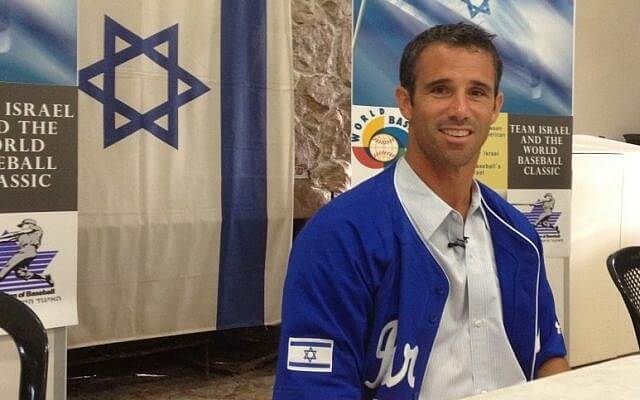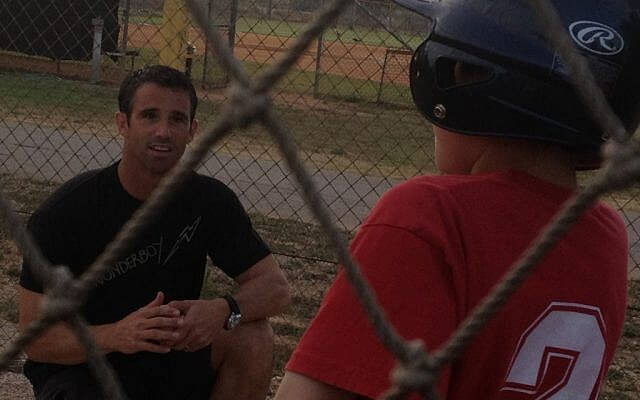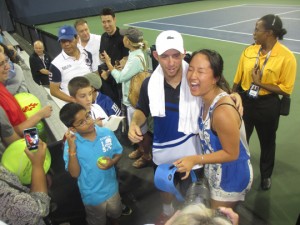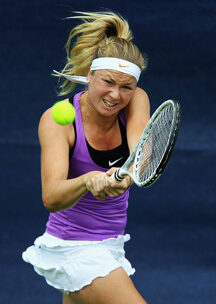For Boyd “Rainmaker” Melson, life at the United States Military Academy at West Point was not easy. West Point demands physical and academic discipline, and even periodic “white glove” room inspections. Lucky for Melson, it also requires a semester-long class in boxing.
“The goal of the course is to teach you to face your fears with no one to lean on. It teaches you to stand up for yourself. You are really exposed and naked when alone in the ring,” says Melson, 32, now a professional light middleweight boxer with a career record of 12 wins, one loss and one draw with four knockouts. He is a 2013 inductee to the Jewish Sports Hall of Fame
“I started to knock out opponents. And I won the school championship as a freshman,” says Melson, who soon found himself practicing at both 5:30 am and 4:30 pm, while carrying a difficult academic load.
“If you are not an engineering major, you must have an engineering minor. I majored in psychology and minored in nuclear engineering,” says Melson.
An army brat, Melson was born in Brooklyn, New York to a Creole father, Nolan, born in Louisiana, and a Jewish mother, Annette, born in Israel to Polish Holocaust survivors.
“Her mother fled to Uzbekistan and spent a year in prison; her father was conscripted by the Russian army, and their four children were all born in different places — Uzbekistan, Austria, Canada and Israel,” says Melson.
How did Annette and Nolan Melson decide to bring up the children Jewish?
“There was no negotiation,” says Boyd laughing, “You know Jewish moms. She said, ‘I am Jewish and our household is Jewish!’”
Boyd attended yeshiva for kindergarten (“I hated it”) and Hebrew school three days a week at Temple Beth El in Manhattan Beach, Brooklyn. Melson celebrated his bar mitzvah in Brooklyn and “was taken to Israel as a bar mitzvah present.”
West Point was his father’s choice of school, but one night during his junior year, Melson’s sense of purpose and mission in life changed abruptly. He was visiting his folks in White Plains, NY, and went out with friends to The Thirsty Turtle, a dance club and lounge.
“I saw a girl who was out with her friends, dancing and a little tipsy,” he recalls. Melson was immediately interested in her and started dancing with Christan Zaccagnino — who was in a wheelchair.
“I crouched down low and we danced,” says Melson, matter of factly. The two began dating soon after.
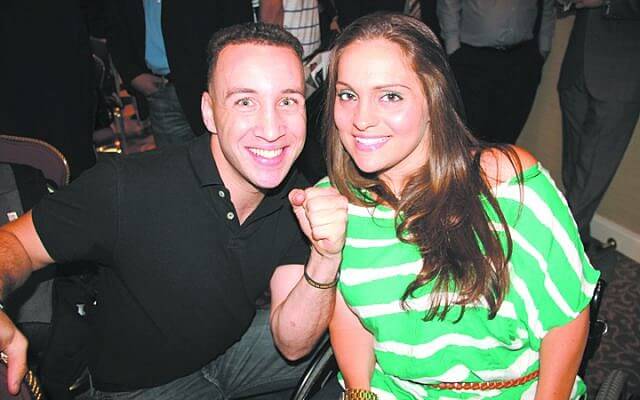
Zaccagnino had broken her neck and become a quadriplegic in 1993 at the age of ten after jumping in to a pool. She became Melson’s inspiration, in and out of the ring.
Melson continued to study (he graduated West Point in 2003 and earned an MBA at Touro College) and box — he was a three time All American, a four time West Point Brigade Open Boxing champion, and earned a spot as an alternate on the 2008 US Olympic boxing team.
Before going pro in 2010, Melson worked as a medical devices representative for Johnson and Johnson.
Since 2010, when Melson and Zaccagnino, still great friends, though no longer dating, founded Team Fight to Walk to raise awareness of spinal cord injuries, he has devoted his time to training full-time as a boxer for charity. He donates every penny of his boxing earnings tojustadollarplease.org, in support of a clinical trial to test promising treatments for spinal cord injuries.
Zaccagnino says, “I knew Boyd loved boxing and he loved to help people, so I helped him find his passion.”
“In the US alone, where a spinal cord injury occurs every 43 minutes, there are 300,000 people living with the tragic after-effects. And 40,000 of them are US Armed forces Veterans,” says Melson.
“The field of regenerative medicine is exploding and holds great promise for the treatment of these injuries,” says Melson.
JustADollarPlease.org is the fundraising project of SCINetUSA, the clinical trial network launched to test promising treatments for spinal cord injury in the United States. SCINetUSA is a partner with ChinaSCINet, the 25 center clinical trial network in China, Hong Kong and Taiwan, where clinical trials have already started.
SCINetUSA supports the work of Dr. Wise Young, the director of the W.M. Keck Center for Collaborative Neuroscience at Rutgers University in New Jersey.
Young’s clinical trials in China have already begun to show promise, says Melson, who has observed successes there after umbilical cells are injected to the spinal cord, and a patient is given six months of walking therapy. Young hopes to bring similar clinical trials to 40 patients in the US by 2014.
‘If five million people each give $1, then we will have a cure. We potentially have the winning lottery ticket without the money to buy a ticket!’
“If five million people each give $1, then we will have a cure. We potentially have the winning lottery ticket without the money to buy a ticket!” says Melson.
Melson reports, “I have experienced firsthand how adult stem cells can improve quality of life. I live to help Christan and others like her.”
The two have traveled the world together in search of an intervention which will get Zaccagnino up and walking.
“Boyd and I are relentless,” says Zaccagnino. “And he takes relentless to a whole new level.”
Melson is currently deep in training for his December 4 bout at BB King Blues Club and Grill where he faces Gundrick King in the eight round main event.
In and out of the ring, Melson is committed to “the cause.” Even his jewelry, clothing and nickname tell the story of his current passions, commitments and causes.
A black bracelet on his left wrist with gold writing says “Team Fight to Walk.” A blue bracelet on his right wrist says “Clinical Trials Now.” He wears a necklace with both a chai pendant and boxing gloves. And his boxing trunks feature symbols he chose in the summer of 2010, leading up to his professional career: a Star of David and a camoflauged wheelchair and West Point ’03 (his graduating class).
The Star of David, says Melson, is to honor his Holocaust survivor grandparents.
“Judaism influences my choices by reminding me of the hardships that our people endure as a race in order to merely survive, and how the idea of loving humanity is the backbone of our religion,” says Melson.
The camouflage wheelchair, he says, is for wounded warriors, Fight To Walk, for Team Fight To Walk, and “Christan’s battle along with the rest of the spinal cord injured world’s battles to get up out of their chairs.”
In the ring, Melson is known as “Rainmaker,” a name is taken from the movie, “The Power of One.”
“The Rainmaker was the nickname given to the main character because he brings hope. The Rainmaker brings hope and that’s my goal for a cure for spinal cure injuries,” says Melson.
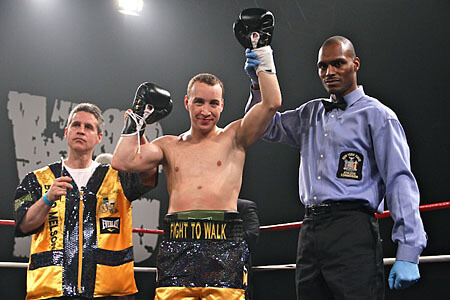
(Source: http://www.timesofisrael.com)


